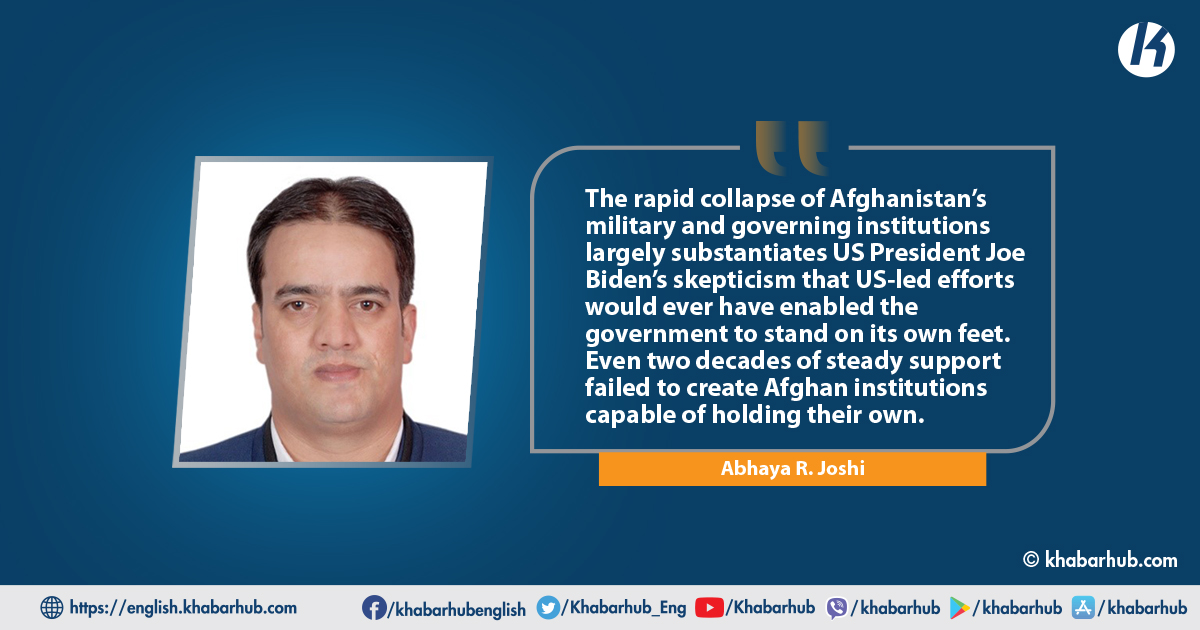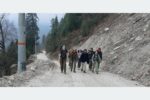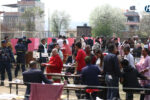Prime Minister Sher Bahadur Deuba is struggling to give full shape to his government. Many pertinent issues including the one related to the rescue of Nepali workers in Afghanistan which is now under the Taliban control and addressing pending issues of the peace process are his foremost challenges.
But the Prime Minister’s decision to prorogue the parliament this week raises serious questions on his commitment to support the rule-based system in Nepal.
The Fate of dialogue with agitating groups
CK Raut-led Alliance for Independent Madhesh (AIM) signed an 11-point agreement with the Government of Nepal, back in March 2019 stating that the state would address the demands of the Madhesh and would compensate the cadres of Raut’s party.
The free Madhesh campaigner, Raut, was arrested in 2017 for his alleged involvement in anti-election activities when he had asked his supporters and the public to boycott the elections.
As a part of such agreements, the government has been withdrawing various court cases to fulfill the demand of another side. It’s obvious that the political cases should be dealt with politically.
Similarly, on March 5, 2021, the erstwhile government of KP Sharma Oli inked a three-point agreement with Netra Bikram Chand alias Biplav of the Communist Party of Nepal. The Chand-led faction is known for violence, threats, and enforcing general strikes.
Under the peace deal between the government and the Chand-led faction, it was agreed that the government would lift its ban on the group, release all of their party members and supporters from jail and drop all legal cases against them.
In exchange, the rebel group agreed to give up all violence and resolve any issues through peaceful dialogue. The party claimed that more than 2,00 cadres were languishing in various prisons under false allegations.
Likewise, on April 28, 2021, the KP Oli-led government decided to release 120 leaders and cadres of the Janata Samajbadi Party, who had been serving a jail term in various prisons.
The party had submitted a name list of 210 cadres and leaders. The erstwhile government of KP Oli agreed to fulfill the demands raised by Janata Samajbadi Party in exchange for receiving support from the government.
As a part of such agreements, the government has been withdrawing various court cases to fulfill the demand of another side. It’s obvious that the political cases should be dealt with politically.
However, there are high risks that, cases with criminal nature get rid of judicial review under the pretext of the political agreement.
Such steps would weaken the rule of law and raise serious accountability issues. While any step to bring the agitating parties into mainstream politics and conduct dialogue is a positive step, but breaching fundamental values of check and balance for partisan benefits cannot be accepted.
Deadlock on transitional justice
It is yet to be seen how the Sher Bahadur Deuba led government will carry forward the dialogue initiated with agitating groups by the erstwhile administration.
While there are talks to withdraw cases against political cadres, rights campaigners have been calling the Nepal government to address pending cases of human rights violations during the decade-long conflict.
The prolongation of the deadlock on transitional justice may protect Deuba and his political counterpart in the short term but will be detrimental to Nepal’s peace and reconciliation process. It will further hurt the sentiments of victims waiting for justice for one and a half-decade.
The present government has committed to clear legal hurdles related to the Truth and Reconciliation Commission and Commission on Investigation of the Enforced Disappeared People in its common minimum program.
The Supreme Court, back in February 2015, had ordered the government to revise legislation on the two commissions by including provisions that would amnesty in gross human rights violations like torture, rape, and murder.
However, the victims are yet left with no justice and support from the country. There are more than 63,000 complaints of human rights violations in the TRC while there are over 3,200 complaints in the CIEDP.
The government has extended the tenure of these commissions for the fourth time but their progress has so far been negligible.
With government reluctance, victims and their families have been deprived of justice in the face of various changes in the political scenario.
The appointment of Deuba as the prime minister with a coalition comprising the CPN-Maoists Centre provides him with the second opportunity to deal with conflict-era cases.
The prolongation of the deadlock on transitional justice may protect Deuba and his political counterpart in the short term but will be detrimental to Nepal’s peace and reconciliation process. It will further hurt the sentiments of victims waiting for justice for one and a half-decade.
What legacy does Deuba want to set?
The Deuba led coalition came into power fighting against the unconstitutional steps of the K P Oli-led government.
However, it has opted for the same style of running the government by proroguing the parliament and introducing ordinances that would severely impact the functioning of a political party in a democratic state.
Deuba’s legacy will continue to be remembered as a leader who bypassed the rule-based regime if he follows the footprints of his predecessor.
(Abhaya R. Joshi is Chairperson at Nepal Center for Security Governance (NCSG)









Comment